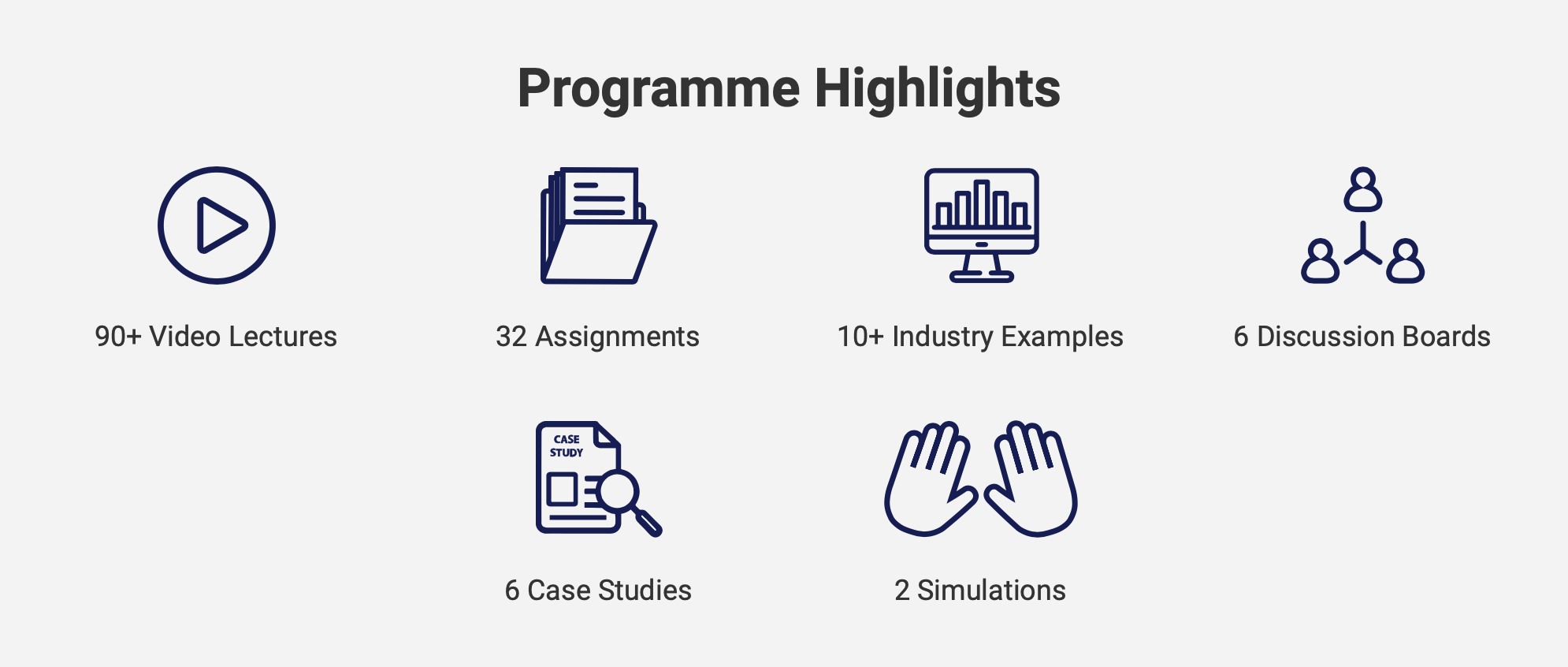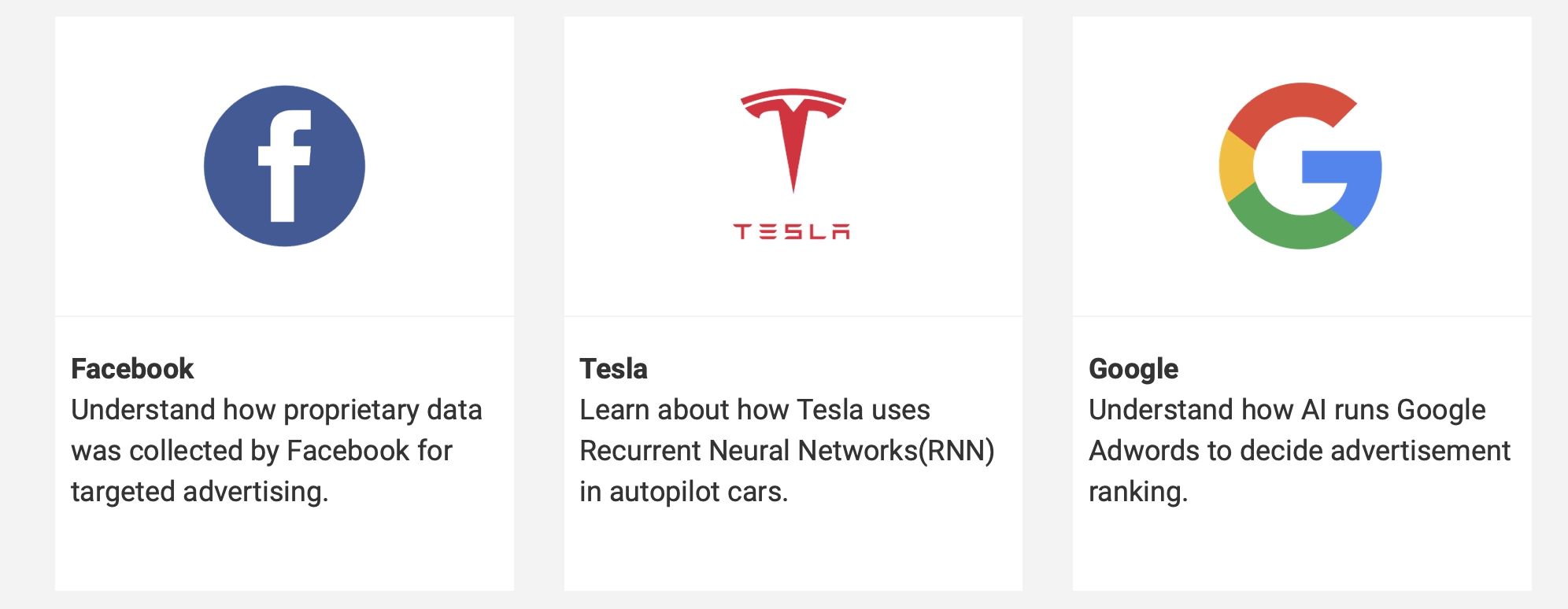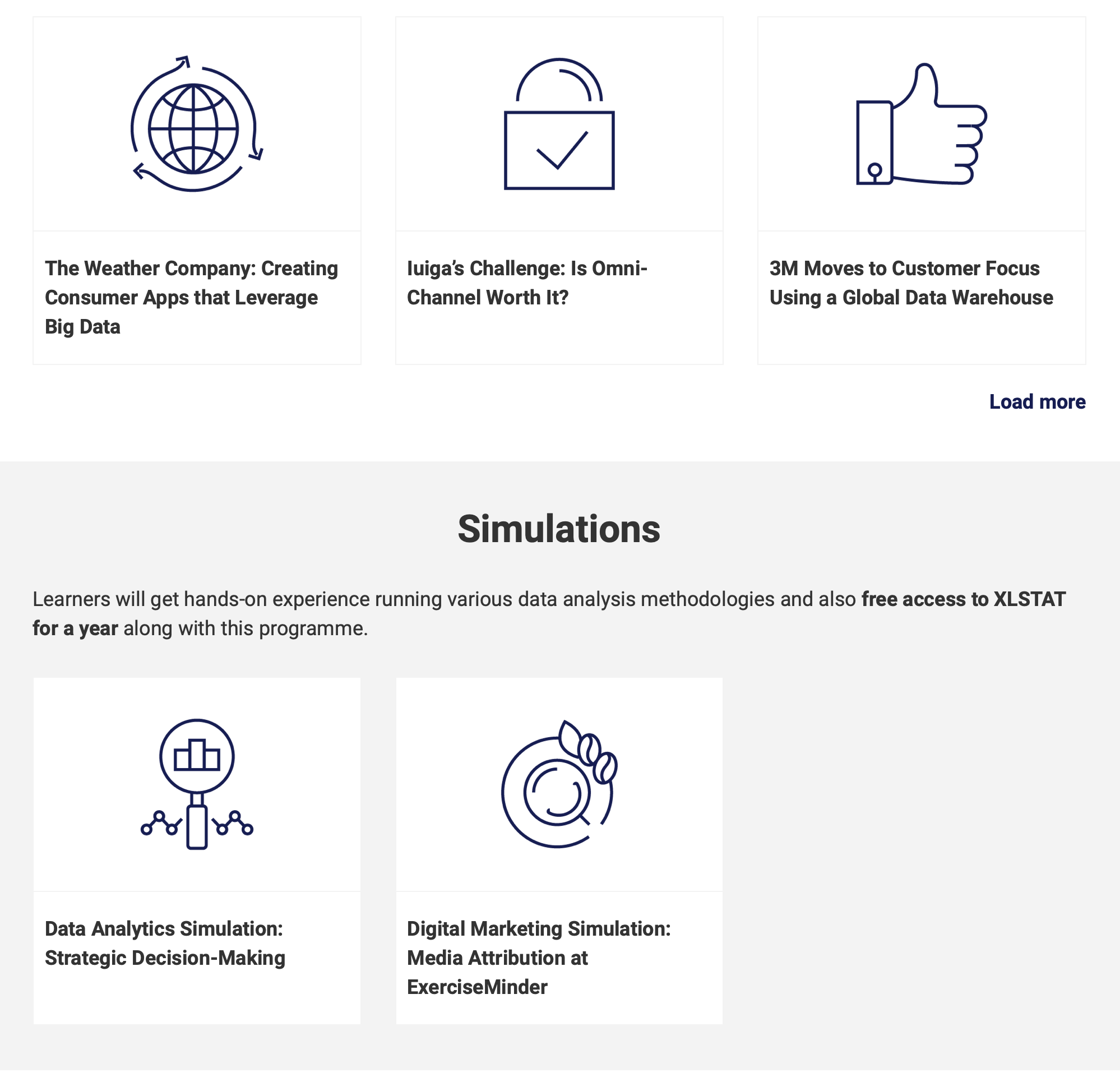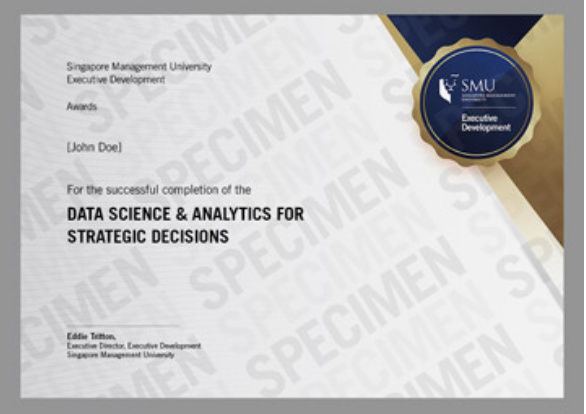Accepting applications for the Data Science programme by Singapore Management University



Download Brochure HERE
| Why study Data Science for Decision-Making? |
| Enterprises across the globe are shifting their focus to data-driven goals and decision-making. In fact, the International Data Corporation reports that APAC big data analytics solutions’ revenue will increase by US$ 41.9 bn by 2024. So, why is data science so important? Because it enables organisations to efficiently process and interpret data that can be used to inform business solutions and drive growth, optimisation and performance. Source: IDC, 2021 |
Applications close on 10 March 2022
Apply today and avail tuition assistance of US$100. Use code SMU100TA during payment.
Have a chat with us – +65 3129 5093 (Monday-Friday) (11:30 AM – 06:30 PM Singapore time)
Why Enrol in Data Science & Analytics for Strategic Decisions?
Enterprises across the globe are shifting their focus to data-driven goals and decision-making. In fact, the International Data Corporation reports that worldwide data will grow 61% to 175 zettabytes by 2025*. So, why is data science so important? Because it enables organisations to efficiently process and interpret data that can be used to make informed business decisions & drive growth, optimisation and performance.
In the online Data Science & Analytics for Strategic Decisions programme—offered by Singapore Management University—you can learn how to process and understand data that can be used to drive better, smarter decisions within your organisation.
*Source: IDC, 2021
22%
is the expected rise in employment of data scientists by 2030 – much faster than the average for all occupations.
SOURCE: US BUREAU OF LABOR STATISTICS, 2021
95%
of businesses cite the need to manage unstructured data as a problem for their business.
SOURCE: SHARESPOST, 2019




Programme Modules
The programme comprises 8 modules. Each module is led by an SMU faculty expert with field experience specific to the Data Science & Analytics topics being discussed.
Module 1:
Leveraging Data as a Competitive Edge
Learn the key terminologies of data science, different levels of data analytics and their significance to decision-making, data features and insights to attain sustainable competitive advantage, and the applications of data analytics and its role in creating new business opportunities.
Module 5:
Field Experiments and Causality
Explore correlation and causality and their significance to enhancing business performance, experimentation for business problems to make effective inferences; Multivariate, A/B and Multi-Armed Bandit testing; and the effectiveness of using experimental design to make data-informed recommendations for business growth.
Module 2:
Data Analytics in Action
Discover the appropriate analytical approach to resolve a business problem, whether your organisation is data-driven, trends in data and obtaining related insights to enhance business performance, the impact an organisation’s omnichannel strategies have on sales, and how to identify appropriate data/insights.
Module 6:
Machine Learning Models for Data Analytics
Build your knowledge of machine learning and its role in driving organisational productivity, how machine learning algorithms can be applied to achieve optimal analytical accuracy, the programme-building facets of neural networks and deep learning, and how analytics can be combined with experiments to produce effective business strategies.
Module 3:
Basic Statistics for Data Analysis
Gain a deeper understanding of comparison of independent data sets to obtain insights, and how to apply strategic decision-making using said techniques.
Module 7:
Addressing Key Challenges and Risks in Data Science Projects
Learn the key challenges to data science projects and their solutions, the Delta Framework and Delta Plus Model, project-level risks and examples of failed data science projects, and how to predict the success of your big data project using the DATA technique.
Module 4:
Predictive Analytics
Learn the basics of regression to analyse the strength/impact of variables, how to predict variable impact using optimal model fit and regression effects, how to build a logistic regression model to test and predict expected outcomes, and how to apply predictive analytics to organisational events to advance strengths and counter threats.
Module 8:
Data Science and the Future
Dive into the drivers, expected outcomes, and technology enablers for Industry 4.0; the components for AI success that can be leveraged to strengthen organisational capabilities; challenges in the implementation of AI in systems; and how to evaluate an organisation’s digital transformation journey and sustain a competitive advantage.
Industry Examples
Through real-world examples from multiple industries, you’ll see how the theories are put into practice.


Other companies that are included as examples or as use cases in the programme include Apple, Netflix, Google Trends, Spotify, Microsoft etc.
Note: All brand, product and company names are trademarks™ or registered® trademarks of their respective holders. Use of them does not imply any affiliation with, endorsement by, or association of any kind between them and programme owners.


Who Is This Programme For?
The programme is designed for both tech and non-tech professionals with 6 – 20+ years of relevant work experience—No coding is required; however, a basic knowledge of Excel would be beneficial. Industries and Functions that can benefit include:
Industries:
IT, E-Commerce, Computer Software, Finance, Marketing and Advertising, Banking, Education Management, and Management Consulting
Functions:
Engineering, Programming, Technology, General Management, Marketing, Finance, Operations, and HR Functions
This programme is especially helpful for professionals who aspire to:
- Transition into a data-centric senior management role
- Gather analytical expertise to handle greater responsibilities
- Utilise predictive models to build effective strategies that address key issues in business operations and product quality
- Become a leader for sustainable business growth
- Spearhead complete ownership of key business tasks and understand underlying strategic implications
What You Will Learn in the Programme?
- Create and implement business strategies leveraging data science.
- Make data-driven decisions to solve business problems using data insights.
- Demonstrate how analytics can be combined with experiments to make data-informed recommendations for business growth.
- Explain the key challenges and risks in data science projects.
- Evaluate an organisation’s data strategy and recommend ways to achieve a sustainable competitive advantage.
- Analyse organisational needs and drive business improvement through data science future trends.
Certificate
Upon successful completion of the programme, participants will be awarded a verified digital certificate by Singapore Management University.


All certificate images are for illustrative purposes only and may be subject to change at the discretion of Singapore Management University.
Early registrations are encouraged. Seats fill up quickly!
Flexible payment options available. Learn more.
Singapore Management University is collaborating with online education provider Emeritus to offer a portfolio of high-impact online programmes. By working with Emeritus, we are able to broaden access beyond our on-campus offerings in a collaborative and engaging format that stays true to the quality of SMU.




